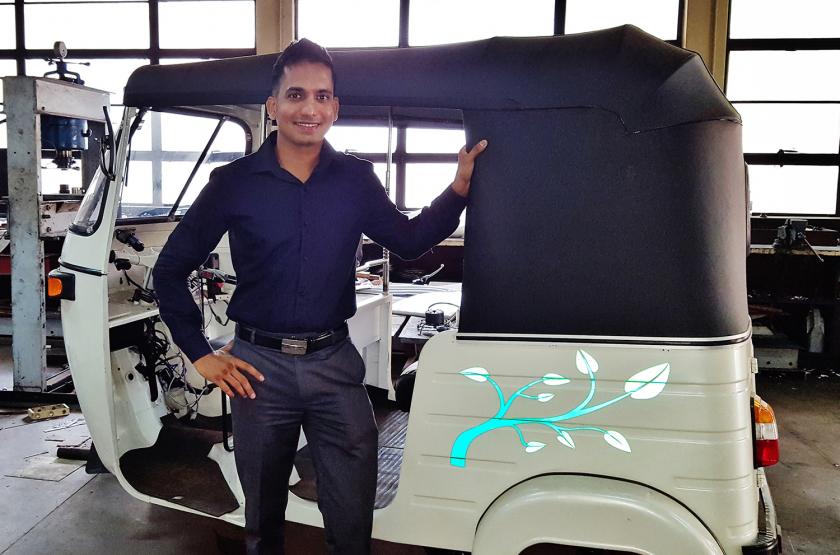For Sasiranga De Silva, the battle to save the planet must begin at home. Dismayed by traffic pollution in his native city of Colombo in Sri Lanka, the 33-year-old engineer and electric-vehicle fanatic set about finding the most effective way of tackling the harmful gases and noise that make life a misery for commuters.
He decided to focus on tuk tuks: the three-wheel auto rickshaws used by millions of people across the world, particularly in Asia and Africa. There are around one million tuk tuks in Sri Lanka, providing essential, affordable transport for many of the country’s 21 million people.
De Silva, who is lecturer at the department of mechanical engineering at the University of Moratuwa, developed an affordable conversion kit to allow tuk tuks to run on electric power. His innovation recently won a US$20,000 grant from UN Environment as part of the Asia-Pacific Low-Carbon Lifestyles Challenge, which supports young people who come up with cutting-edge ideas to foster energy-efficient, low-waste and low-carbon lifestyles.
De Silva, who will also receive business and marketing training as part of his prize, says his conversion kit, based around a rechargeable lithium-ion battery, will save tuk tuk drivers money over time, and reduce noxious emissions. His invention is the culmination of a lifelong passion for sustainability.
“Since my university days, I’ve taken an interest in sustainable energy systems, so I studied solar and wind power but then I narrowed my scope to electric vehicles. I wanted to relate electric vehicles to sustainability,” he said.
Dechen Tsering, UN Environment’s director for the Asia-Pacific region, hailed De Silva’s project, noting that the transport sector is a major contributor to greenhouse gas emissions.
“Electrifying our transport options is the kind of solution that will make an enormous impact on air quality in Sri Lanka and other countries across the region,” he said.
In 2008, the Sri Lankan government banned the import of polluting two-stroke tuk tuks because of their low efficiency and high greenhouse gas emissions. But around 300,000 remain on the roads. The government is also now offering low-interest loans to stimulate conversions to electric tuk tuks. A UN report last year found that millions of lives could be saved and one billion people living in Asia could be breathing clean air by 2030 if 25 simple and cost-effective measures were implemented, including a shift to electric vehicles and better emissions standards and controls.






















